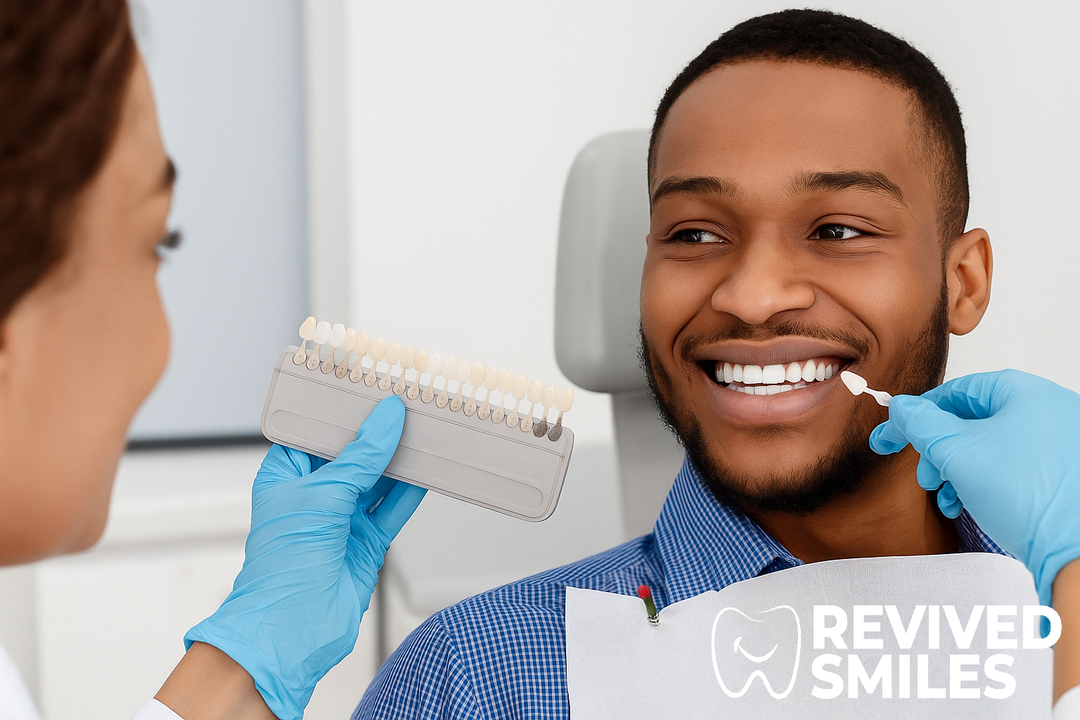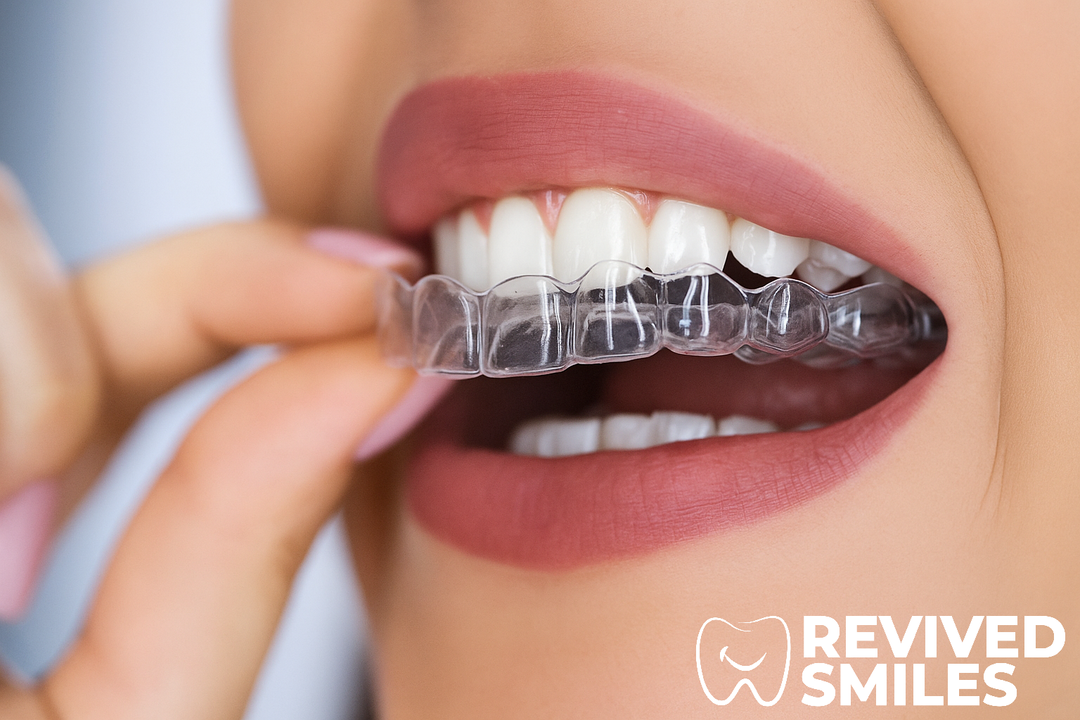Missing Teeth? You're not alone but you have options!

Losing teeth as an adult can be a profoundly stressful and disheartening experience, impacting far more than just your physical appearance. It often leads to challenges in eating and speaking, coupled with a significant decline in self-confidence. These struggles, common yet deeply personal, affect both your social interactions and overall quality of life. However, you're far from alone. Over 178 Million Americans are missing at least one tooth, that's a little over 50%, a testament to how common this issue is. Fortunately, thanks to advancements in dental technology, there are now multiple options for replacing teeth, each uniquely designed to help you regain your smile and confidence.
Let’s explore some tooth replacement options that could be the key to a revived smile!
Embracing Partial Dentures: An Affordable and Effective Solution
When it comes to tooth replacement, partial dentures are often highlighted as an accessible and cost-effective solution, especially for those missing multiple teeth on various sides of the arch. These dentures are designed to cater to a diverse range of dental needs with their various shapes and sizes. However, as with any dental solution, it's important to consider both the pros and cons.
On the plus side, partial dentures are generally more affordable compared to other tooth replacement options like implants or bridges, making them an attractive choice for many on a budget. They are also highly adaptable, capable of addressing a wide variety of dental situations. Additionally, opting for partial dentures means avoiding surgical procedures, as they are a non-invasive solution.
However, there are some downsides to consider. New users of partial dentures often face an adjustment period, during which they might experience discomfort or difficulties with speaking and eating. Maintenance is another aspect to keep in mind; partial dentures require regular cleaning and care to ensure proper hygiene and functionality. Lastly, although they effectively restore the appearance of a full set of teeth, partial dentures may not offer the same natural feel as other options like dental implants.
Revived Smiles, offers several types of partial dentures:
- Flexible Partial Denture: Known for their comfort and flexibility, these dentures are a popular choice. They are made from a flexible, lightweight material that adapts to the contours of your mouth, providing a natural appearance for an aesthetic fit and function.

- Acrylic Partial Denture: These traditional dentures are known for their durability. They consist of replacement teeth attached to an acrylic base, which can be color-matched to your gums for a realistic look. Acrylic partials dentures often use metal clasps to remain secure in the mouth. They offer a durable and stable solution for missing teeth.
-
Unilateral Partial Denture: Ideal for those missing one to 3 teeth next to each other, these are smaller, less invasive, and easily blend with your natural teeth.

Revived Smiles streamlines the process of acquiring these dentures through a simple 3-step process. It begins with you taking impressions of your teeth at home using a Revived Smiles impression kit. These impressions are then reviewed by a licensed dentist in your state, who prescribes your denture. Following this, the Revived Smiles dental laboratory, equipped with the latest technology and skilled technicians, crafts a partial denture tailored to your individual needs. This process is typically completed within about two weeks, offering a personalized and swift solution for dental restoration.

Dental Implants: The Gold Standard
Dental implants are often revered as the gold standard in tooth replacement, and for good reason. Comprising titanium posts surgically inserted into the jawbone, they serve as artificial roots for teeth. Once these implants have integrated with the bone, they're capable of supporting various dental prosthetics such as crowns, bridges, or dentures. The allure of dental implants lies in their permanence and their ability to mimic the look and function of natural teeth.
However, it's essential to weigh both the advantages and limitations of this option. Dental implants boast remarkable stability and strength, often providing a more natural feel compared to other tooth replacement methods. Their integration with the jawbone also helps in preventing bone loss, a common issue following tooth loss. Additionally, implants don't require altering adjacent teeth, preserving more of your natural tooth structure.
On the flip side, the process of getting dental implants is more invasive, requiring surgery and a period of healing. This process can be lengthier and more complex than other tooth replacement options. There's also the consideration of cost, as implants tend to be more expensive upfront compared to alternatives like dentures or bridges. Furthermore, not everyone is a candidate for dental implants; sufficient bone density and overall good health are prerequisites for successful implantation.

Bridges: Bridging the Gap
Dental bridges offer a viable solution for those missing one or more teeth in a row. These devices comprise artificial teeth, known as pontics, anchored either to adjacent natural teeth or to dental implants. By filling the gaps left by missing teeth, bridges not only restore the aesthetics of your smile but also enable proper chewing functionality. As fixed prosthetic devices, bridges are non-removable, providing a sense of permanence and stability.
The advantages of dental bridges are notable. Firstly, they effectively restore the appearance and function of missing teeth, improving both your smile and your ability to eat and speak. Bridges also help in maintaining the shape of your face and preventing remaining teeth from drifting out of position, a common issue following tooth loss. They are typically less invasive than dental implants, as they don't require surgery, making them a more straightforward procedure for many patients.
However, dental bridges come with certain considerations. To install a bridge, the adjacent teeth must be prepared, often involving the removal of a portion of enamel to accommodate the bridge. This alteration of natural teeth is irreversible. Additionally, while bridges are durable, they may not offer the same longevity as implants and can require replacement after several years. Proper hygiene is essential, as bridges demand careful cleaning to prevent decay and gum disease around the anchoring teeth.
In essence, while dental bridges present an efficient and less invasive option for tooth replacement, it's important to consider the impact on adjacent teeth and the need for diligent oral hygiene and potential future replacements.
All-on-4 Implants: A Game-Changer
All-on-4 implants represent a significant advancement in dental prosthetics, especially for those who have lost most or all of their teeth. This innovative technique involves strategically placing four dental implants in the jawbone to support a full arch of prosthetic teeth. These implants are known for providing exceptional stability and functionality, enabling individuals to eat, speak, and smile with renewed confidence. A notable advantage of All-on-4 implants is their ability to often bypass the need for bone grafting, which makes them a more feasible option for patients with reduced bone density.
The benefits of All-on-4 implants are considerable. They offer a more permanent and comfortable solution than traditional dentures, as the implants are anchored securely in the jawbone. This not only enhances comfort but also improves biting and chewing ability. Additionally, the procedure helps in preserving the jawbone and preventing the facial sagging that often accompanies tooth loss. All-on-4 implants are designed to provide a natural-looking set of teeth, enhancing both aesthetics and functionality.
However, there are aspects to consider before opting for this solution. The procedure for All-on-4 implants is surgical and thus more invasive than traditional dentures. It requires a certain level of oral health and bone structure to be successful. In terms of cost, All-on-4 implants can be more expensive upfront compared to other tooth replacement options, although they may offer greater long-term value. Recovery and healing time post-surgery is also a consideration, as it may take several months for the implants to fully integrate with the bone.
Making the Right Choice
When considering tooth replacement options, consulting with a qualified dentist or prosthodontist is crucial. They will assess your specific needs and recommend the most suitable solution, considering your oral health, bone density, and budget. If you're unsure of your needs or are unable to visit a dentist in person, The Teledentists offer virtual dental services nationwide. Their extensive network of licensed dentists utilizes a variety of virtual tools (smart phones, tablets, laptops) to assist in diagnosing, remediate and, when needed, arrange local dental appointments for hands-on care.
Remember, regaining your smile, confidence, and eating ability is entirely achievable with the right tooth replacement solution. Whether you opt for dental implants, bridges, dentures, or another option, take the first step towards restoring your dental health and enhancing your overall well-being.
With Revived Smiles, a brighter, more confident smile is just around the corner.





Leave a comment